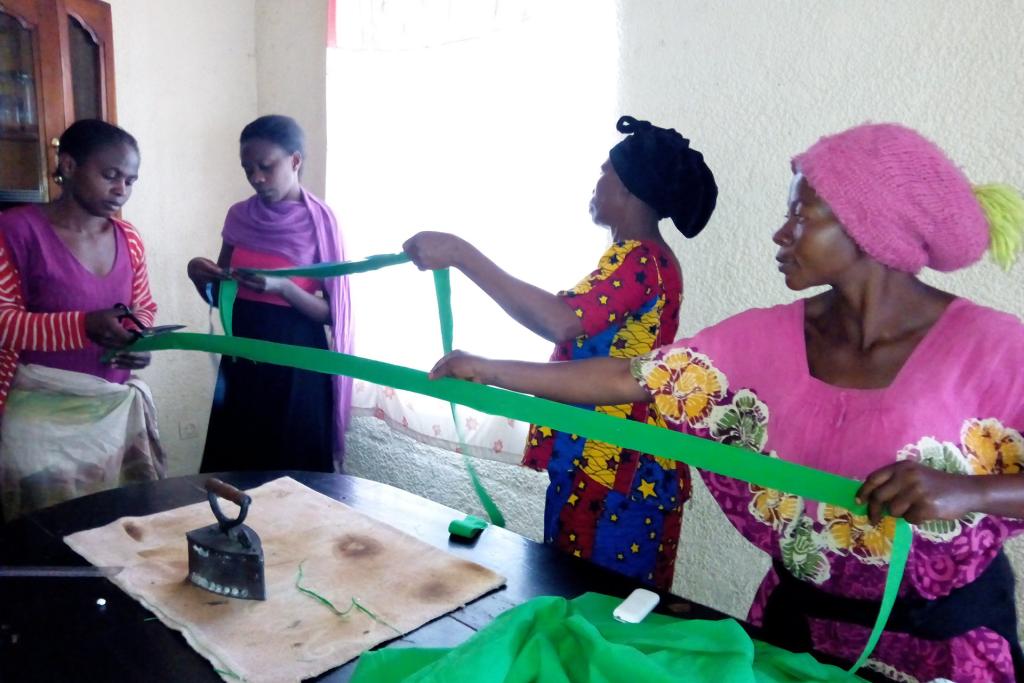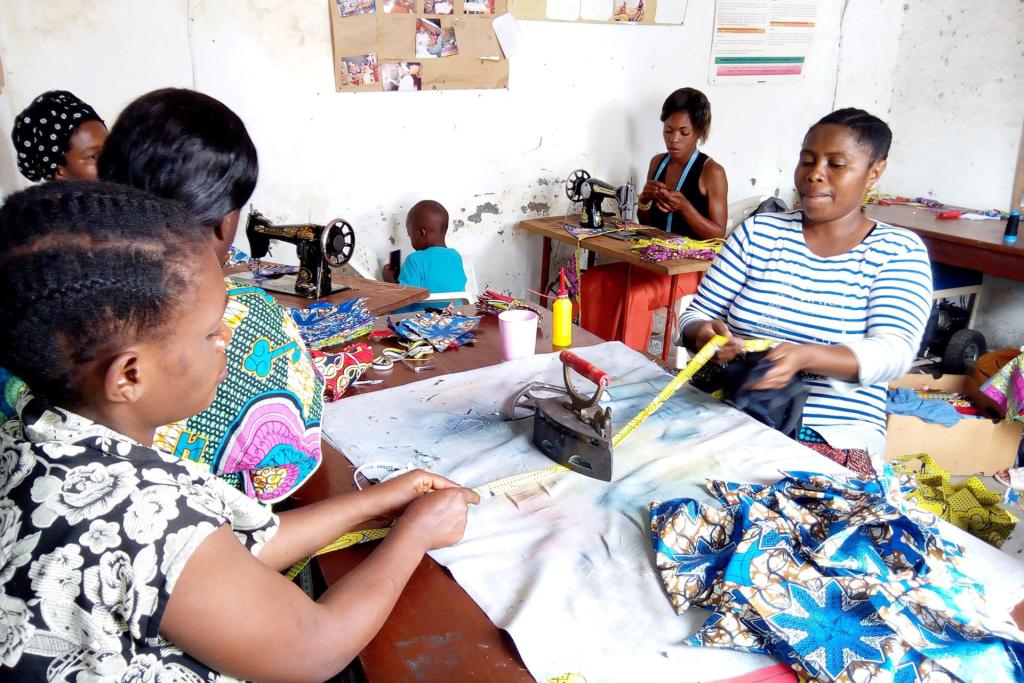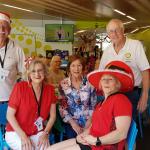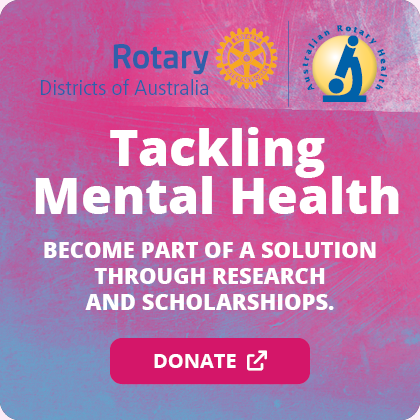Mama Wimbi and The Heart of Africa Proposal
In 2012, Penelope Vos, now a member of the Rotary E-club of Greater Sydney, received a message from Goma in the Democratic Republic of Congo: “Ĉu vi povas helpi nin?” The writer was a member of a tiny local charity, Solidareca Bonvolo (SBV), supporting the poorest orphan children by paying their school fees.
The founders of the charity spoke Swahili and French but felt the need to communicate with a wider international community, so they had learned Esperanto, a language designed for quick mastery and intercultural communication. Their new language helped them gain the support of an Italian Pastor Duillio Magnelli, who found sponsors for a few dozen children and several university students. At the time SBV contacted Penelope, the beloved pastor had died, and contact with the sponsors was lost; the children were facing expulsion from school unless a website could be made to attract new support.

Penelope had helped with simple websites for other Esperanto groups, so made one for SBV and tested it by sponsoring a pair of sisters, Sarah and Angel. (Sarah will soon be an accountant!)
After a few years, Penelope went to Congo to visit every home and school associated with the charity, to ensure everything was as presented. It was, but it soon became clear that orphans were not the only children denied schooling by lack of funding. With help from members of the global Esperanto-speaking community, the program expanded to include children with mothers, and sometimes even fathers, if they needed help. Penelope joined the board of SBV.
She was invited to speak to, and then to join, The Rotary Club of Cooma, in District 9705. Rotary’s commitment to sustainable development strengthened SBV’s resolve to find a way to empower the mothers to provide for their children without foreign sponsorship. Rotary Australia World Community Service (RAWCS) helped SBV establish the ‘Mama Wimbi Buntings for Education and Independence’ project. District 9705 bought five sewing machines to get the project underway and A Pink Umbrella Foundation prize helped enormously too.
“The children who receive the bags are among the world’s most needy. They will eat better with the money saved from buying exercise books.”
Over the next few years, SBV and School-in-a-Bag collaborated to distribute school bags full of equipment to 100 children on a couple of occasions. The sewing team graduated from sewing colourful buntings made of local fabric (still available to order – call 0429 170 739) to making school uniforms.
Their determination to learn to sew and keep improving their skills was impressive, but competition from Chinese imports is crushing when paying local prices for fabric and other supplies.
The sewing was not profitable enough to pay the school fees and the workshop hire, so the whole enterprise was looking very wobbly until Tony Castley, founder of the Rotary E-club of Greater Sydney, and his charity SewAid stepped in. Tony upgraded the sewing machines, sent an overlocker, and paid the rent until a longer-term solution could be found.

Now, the sewing team has mastered the extra skills needed to make school bags to the specification of School-in-a-Bag, and Mama Wimbi/SBV has written a proposal to School-in-a-Bag to make, fill and distribute thousands of schoolbags to Congolese, Burundian and Central African children annually.
“By making so many we can make best use of our workshop and the team’s diligence and skill,” Penelope says.
“Seven mothers and one manager will work full-time and pay their own rent and school fees. SewAid is helping us access materials in China at bulk prices, which will make a dramatic difference to the market value of the workers’ efforts. The children who receive the bags are among the world’s most needy. They will eat better with the money saved from buying exercise books.
“We feel confident that School-in-a-Bag will accept our ‘Heart of Africa’ proposal if they have enough sponsorship to cover that number of bags. If not, we will be looking for additional sponsors to support our two-tiered initiative: helping eight diligent families become self-sufficient by providing school supplies to thousands of children desperate to belong and to learn.”
Related news
Dubbo West Community Carols by Candlelight
Celebrate the festive season at Dubbo’s Carols by Candlelight, promising fun, music and the big man himself.
Sanitation solutions in Sumba
By PDG John KevanRotary Club of Mandurah Districts, WA In East Sumba, where the financial capacity to support water and health requirements for villages in remote areas is severely limited, Fair Future Foundation has been successfully providing materials and training to enable villagers to build their water and sanitation facilities for more than 15 years. […]
Queanbeyan delivers U-Turn the Wheel pilot program
Throughout May, the Rotary Club of Queanbeyan, NSW, held the 2024 pilot program of U-Turn the Wheel (UTTW) at three local high schools in Queanbeyan – The Anglican School at Googong, Karabar High School, and Queanbeyan High School. Overall, approximately 125 students took part in the one-day program. Feedback from students and staff was positive, […]
Join our newsletter for the latest updates
"*" indicates required fields


